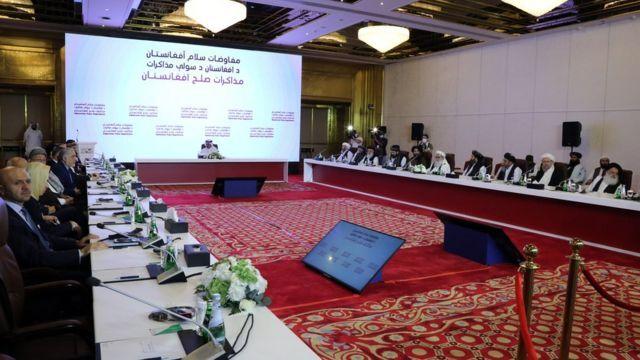In an interview with the website of the Strategic Council on Foreign Relations regarding the holding of a two-day meeting in Doha, Qatar, on Afghanistan on behalf of the United Nations and with the presence of representatives of other countries, Nozar Shafiei said: Since Qatar has traditionally played a role in this regard, the meeting was held there; because the meetings are usually held in a place that is agreed upon by the parties. Qatar is a suitable base for both the Taliban and other countries.
Pointing out that the meeting was held under the supervision of the United Nations and is important from this point of view, he added: Also, countries that participated in the Doha meeting, including China, the US, Iran, etc., are somehow related to the Taliban issue.
According to Shafiei, the international community has faced a kind of uncertainty regarding the Taliban; on the one hand, whatever economic and political pressure is put on the Taliban to take action in the field of human rights violation, violation of women’s rights, violation of ethnic and religious minorities, and formation of an inclusive government, no result is achieved.
On the other hand, leaving the Taliban alone will not positively affect the international community and Afghan society.
In response to the question of how the Taliban should be treated in this situation, Shafiei said: The question is whether they should be pressured, or should be left alone, or whether the Taliban can be held accountable by showing flexibility towards them.
The university professor also addressed the issue that in Afghanistan today, two factions seriously disagree with each other regarding the case of women and other issues and explained: One faction is related to Mullah Haibatullah, who is based in Kandahar and has many extreme views and the other faction includes people such as the minister of defense, the minister of interior, and the deputy prime minister, who have a more moderate view on women’s affairs and human rights.
Shafiei emphasized that due to the presence of the two factions in Afghanistan, the United Nations is trying to strengthen the second and more moderate spectrum; of course, it should be noted that it does not result from rejecting the Taliban.
He added: Therefore, it seems that the recent meeting under the supervision of the United Nations was an answer to the question of how to deal with the Taliban. Should they be pressured until today, such pressures have not reached any result, or should they be left alone, and such a measure will not have a positive outcome either? Therefore, maybe the UN is working on the so-called recognition of the Taliban or any other mechanism that will lead to more engagement with the Taliban and encourage them to be flexible in their strict policies.
The expert on Afghanistan affairs said that the UN is encouraging it instead of punishing it. Because as the strategists have recommended about the Taliban, it is useless to attack the movement to put political or strategic pressure on them or even to abandon them, and therefore the only option to encourage the Taliban to adjust its extremist policies is some recognition or similar attitude.
Shafiei explained that such discussions about the recognition of the Taliban go back to a series of developments in the past few months, and the Doha meeting is significant within the context of those developments.
He emphasized: In that meeting, no measure was taken regarding the recognition of the Taliban, even though it was said that the Taliban is not going to be recognized, but just holding the meeting on the issue of how to interact with the Taliban, such interaction will be in the direction of some recognition, not applying more pressure. Because, as was mentioned, applying more pressure has not been a solution to date.










0 Comments